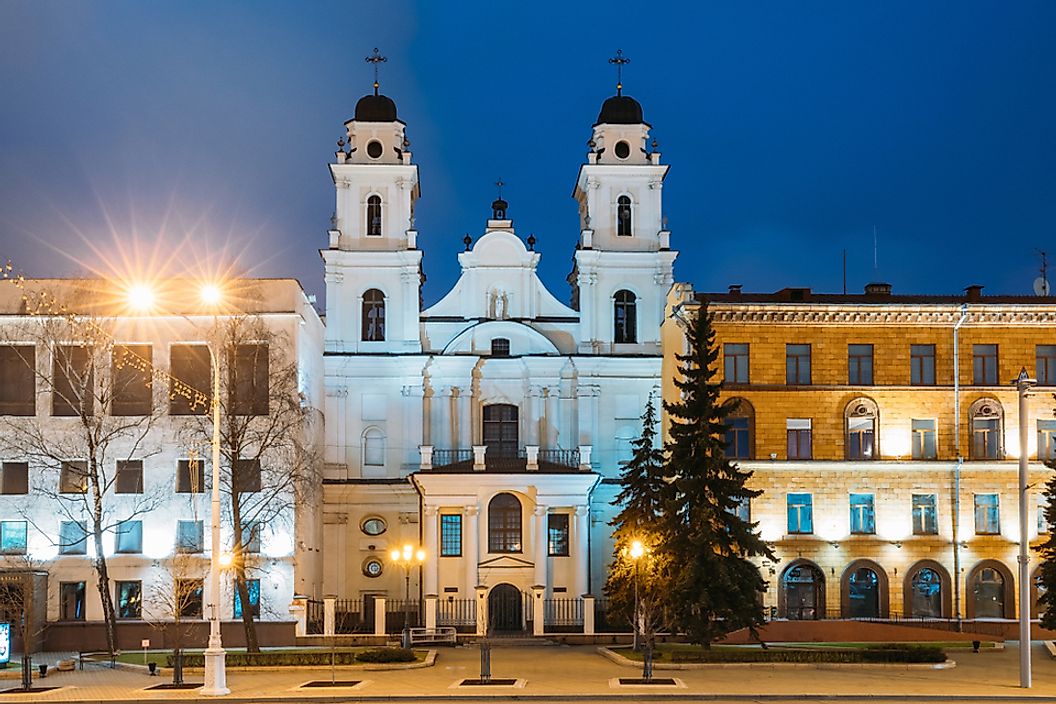Religious Beliefs in Belarus

Belarus is a country in Eastern Europe that covers an area of 207,595 square km and has a population of 9,498,700. According to the 2011 census, Eastern Orthodox Christianity is the most common religion in Belarus. The census revealed that 58.9% of country’s population follow some kind of religion, and 82% of this religious population are affiliated with the Eastern Orthodox Church. Other religions practiced in the country include Roman Catholicism, various Protestant denominations, Neopaganism, Judaism, and Islam.
According to the census, Eastern Orthodox Christians account for 48.3% of the total population. Catholic Christians and adherents of all other religions account for 7.1% and 3.3% of the population of Belarus, respectively. Additionally, 41.1% of the population does not follow any religion. The high percentage of non-believers in Belarus is the legacy of the state atheism policy during the communist Soviet era.
Christianity in Belarus
The Eastern Orthodox Church has the highest number of adherents in the country. However, the church suffered greatly during the Second World War and experienced a period of decline for many years following. It was not until the early 1980s that the church underwent a revival, and the Belarusian Orthodox Church was created in 1990. By the first half of the decade, nearly 60% of the country’s population was affiliated with the Orthodox Church.
Roman Catholicism also has a small presence in Belarus, while Protestantism has grown since the Second World War. The number of Protestant communities in the nation had increased from 32 in 1917 to 350 in 1990.
Judaism in Belarus
Jews began to arrive in Belarus towards the second half of the 14th century. The Jewish population soon grew to about 1.3 million in 1914. Most of these Jews were urban residents and accounted for about 50 to 60% of Belarus’s urban population. However, the genocide during the Second World War, significantly reduced the Jewish population in Belarus. In fact, the Jewish population in Belarus had shrunk to only 142,000 in 1989, as many had since emigrated to other countries.
Islam in Belarus
Ethnic Tatars comprise the bulk of Belarus’ Muslim population, and all practice Sunni Islam. Muslims in Belarus trace their origins to prisoners of war and emigrants who arrived from the Volga region. Most of the country’s Muslims are concentrated in the western region of Belarus.
Religious Freedom and Tolerance in Belarus
The constitution of Belarus provides the right to freedom of religion to its citizens. The country lacks an official religion. However, the constitution does note that if a religious organization is deemed a threat against government and social order in the country, stern action can be taken against such an organization.











